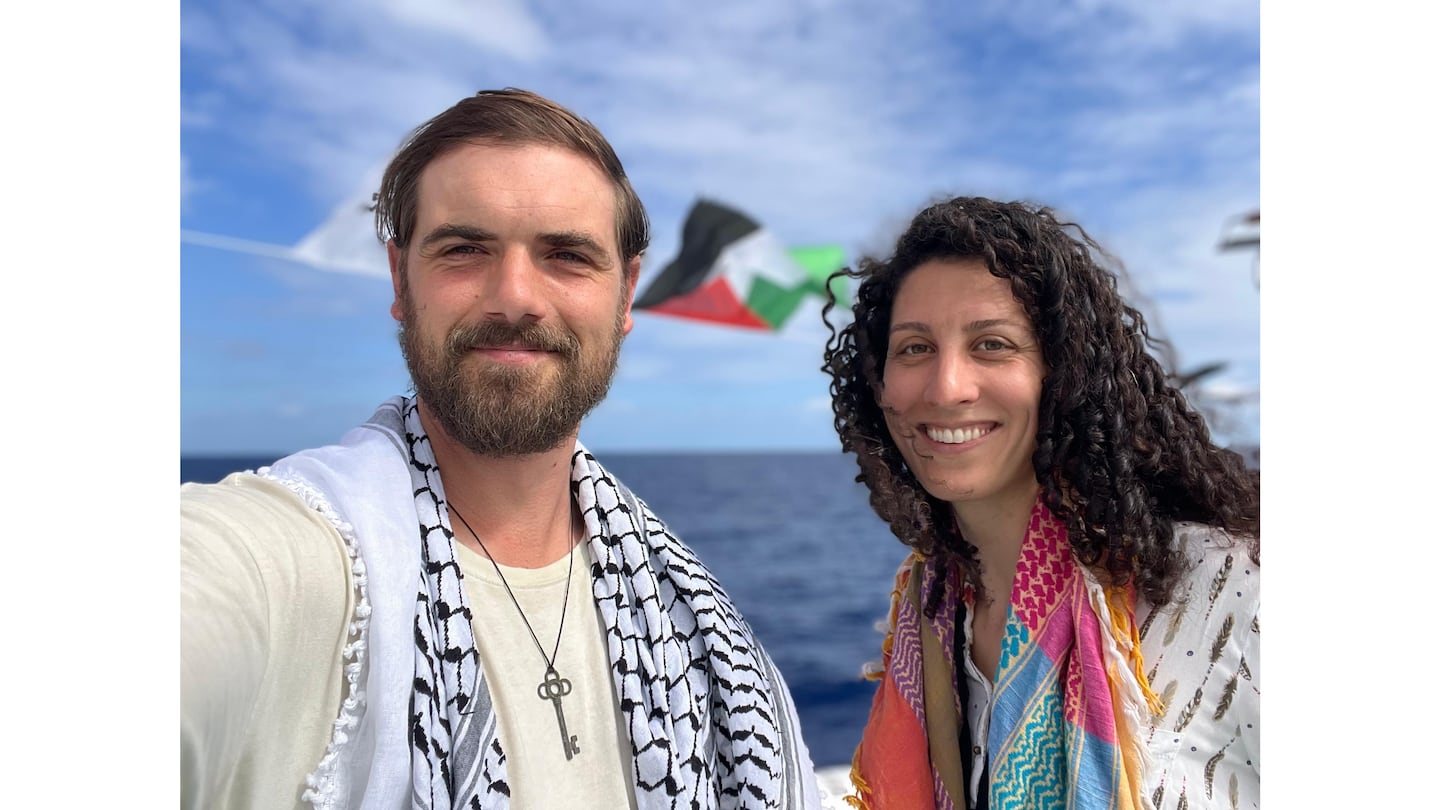Young couple Will Alexander and Ava Mulla are aboard the Freedom Flotilla ship Conscience, sailing to Gaza with humanitarian aid.
They are among 82 people aboard the Turkish passenger ship, delivering humanitarian aid including baby formula, food, and medical supplies to Gaza.
The ship is travelling as part of a long-running international effort to challenge Israel’s blockade of Gaza and humanitarian aid missions.
Their whānau are supportive of the mission.
“Overall, they’re proud and supportive,” Alexander said, “although obviously concerned and relieved to have us home.”
Mulla said her father’s faith gives him strength, and that belief helps ease her own concerns.
“We’re confident we’re not going to die and whatever injuries we suffer, whether physical or mental, we’ll heal and we’ll be stronger afterwards,” she expressed.

Freedom Flotilla vessels have attempted to break the blockade since 2008, with 31 boats sailing between then and 2016. Five successfully reached Gaza before 2010, after which flotillas have been intercepted or attacked by Israel in international waters.
In 2015, Whakaata Māori Native Affairs reporter Ruwani Perera was detained by Israeli forces, and the following year Green MP Marama Davidson was also detained.
UN Officials say famine in Gaza is a man-made crisis
More than half a million people in Gaza are trapped in famine, according to an IPC analysis released in August. A famine is declared when three critical thresholds are crossed: extreme food deprivation, acute malnutrition, and starvation-related deaths.
UN Human Rights Chief Volker Türk said the famine is a direct result of Israeli government actions, as it has unlawfully restricted the entry and distribution of humanitarian assistance and other goods essential for survival.
UN Secretary-General António Guterres explained, “Famine is not about food; it is the deliberate collapse of the systems needed for human survival.”
The carpet bombing of Gaza has intensified this collapse, leaving only 1.5 percent of cropland able to produce food — the rest damaged or inaccessible.

However, even before the current escalation, the UN Office for the Coordination of Humanitarian Affairs (OCHA) had warned that Israel’s long-standing blockade and trade restrictions had already created widespread unemployment, food insecurity, and aid dependency.
Legal concerns about the humanitarian crisis
These humanitarian impacts directly relate to questions of the blockade’s legality.
Israel has maintained a land, sea, and air blockade on Gaza since 2007, following Hamas’s takeover.
It cites Article 51 of the UN Charter, arguing the measure is a legitimate act of self-defence against weapons smuggling.
However, UN bodies and human rights organisations say the blockade amounts to collective punishment, prohibited under Article 33 of the Fourth Geneva Convention.
Under the 1994 San Remo Manual, a blockade is unlawful if it starves civilians or causes disproportionate harm.
Because many legal experts view Israel’s blockade as illegal, the interception of humanitarian vessels in international waters is also considered a breach of international law.
Humanitarian law, including the Fourth Geneva Convention and ICRC customary principles, requires that civilians be protected from starvation and collective punishment.

New Zealand’s position
As a UN member and party to the Geneva Conventions, New Zealand is bound by international law, which includes obligations to uphold and help enforce compliance by other states.
“It’s a shame to feel disappointed by their reaction, and disappointed is an understatement. For a long time, New Zealand has stood as a beacon of human rights, and to hear Winston Peters say now is not the right time to recognise Palestine is a weak response,” Alexander said.
He also highlighted New Zealand’s military role, noting troops deployed to the Red Sea to assist the US while it bombed Yemen, and raised concerns that the government has not investigated Rakon, which may have connections to smart bombs.
He also criticised the government for suspending UNRWA funding based on accusations of its staff’s involvement in Hamas attacks, with Prime Minister Christopher Luxon stating no further payments will be made until these claims are addressed.
Alexander urged government action. Following the recent March for Humanity calling for diplomatic, military, and economic sanctions on Israel, Alexander said New Zealand must apply international pressure and uphold a rules-based order in line with international law.




